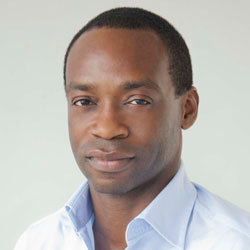We’d cut school like knives through butter, the three
Of us – Peter, Stephen and I – to play
Just about all the music we knew,
Which meant that from nine in the morning till
Steve’s parents, the ever-patient Murtaughs,
Would get home from work, I played guitar,
Peter played bass, and Steve (who’d end
Up becoming a guitarist by trade
When we went separate ways, to separate
Schools, in separate states), Steve at this point
Played the drums. We dreamed of power trios
And powered our way through song after song,
Including ones Steve and I wrote – like
“Hey, Regina” and the lamentably
Titled “String Her Up.” Sometimes we tried out
Some Yes, a long “Hey Joe,” the stereo phaser
Was my signature sound, and I’d bend in
And out of notes, imply arpeggios
Only to solo over them, tapped, frowned
Through anything in a major key, felt
My way home on Steve’s map of snares, Pete’s rope.
We’d play an entire Zeppelin album,
Usually the first or second, then stray
By chance into the longer, later songs
Like bees that float down and drown in a pool.
We’d break for lunch and then get back at it,
As though we had a gig to get ready for,
Or a demo to cut, the cassette deck
Rolling its eyes as it whirred round and round.
Peter, as is the nature of bassists,
Held the tunes together and kept things light.
Years later, I assumed he was dead.
My Telecaster glares at me at night now
From inside the hard case by my bed –
And the calluses on my fingertips
Have long since softened. The six-minute solos
At some point became poems it took two months
Minimum to make seem seamless. Steve
In the meantime thrived in the Triangle,
Became Stevie, married Emily; Pete
I knew less about. He posts on Facebook
Cheerfully about the Light, the Great Light
That glows in all of us, sends the occasional
White dove in the occasional shared shot,
A sun resting on a cloud like a pearl
In its mooted gray shell. Nostalgia courts
Me. I’m nearing forty, we were boys –
And I should let us be. But nostalgia
Spreads quickly through the ashes of our youth,
Making ferned fires out of blue beliefs.
When the dark would come, we’d show each other
Our blisters, the painful white whorls peeling,
Our red palms upwards, outstretched and unread.
Notes on the Poem
Rowan Ricardo Phillips balances the personal with the universal in "Boys", a poem capturing youthful reminiscence from his 2016 Griffin Poetry Prize shortlisted collection Heaven. Let's examine what the poem accomplishes so beautifully. Phillips' narrator looks back on his and his high school friends' aspirations, using a rueful, conversational tone to recount their rehearsals and musical choices in a voice that establishes its authenticity from the start with: "We’d cut school like knives through butter" ... a simile so goofy it could only have come from a teenaged boy. The details, such as the band names, instruments, recording technology and other cultural references of the time, are specific and catalogued in the self-important and absorbed manner of an adolescent. But then the voice subtly shifts, as you realize that lines like: "then stray By chance into the longer, later songs Like bees that float down and drown in a pool." ... sound more like an older narrator reflecting and looking back wistfully. By the time we reach the final lines: "When the dark would come, we'd show each other Our blisters, the painful white whorls peeling, Our red palms upwards, outstretched and unread." they verge on startling, because they are both so intimate, and yet so symbolic of hard work and passion being served up (the "palms upward") to whatever the future will make of one's youthful offerings. The 2016 Griffin Poetry Prize judges captured what Phillips has achieved here when they remarked in the citation for Heaven, "This is a book that manages to make something indelible of what we’ve wrought and lost, and of what we are still desperate to decipher ..."
